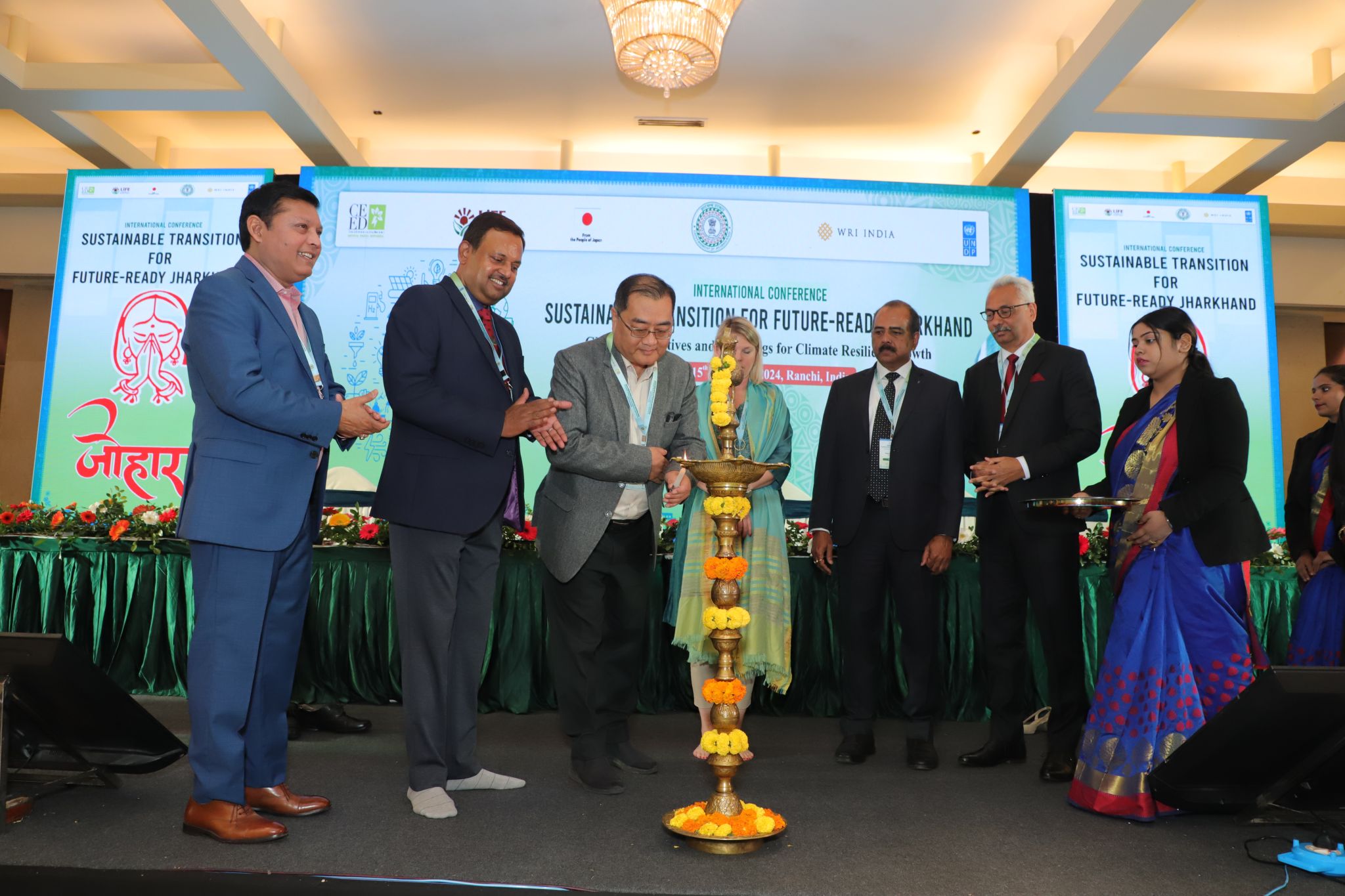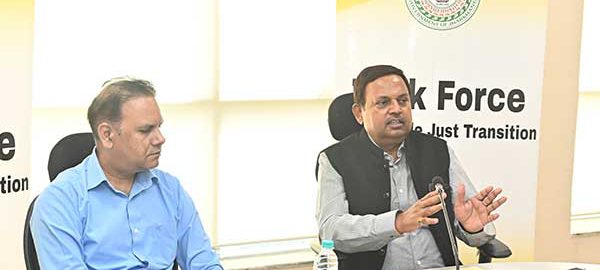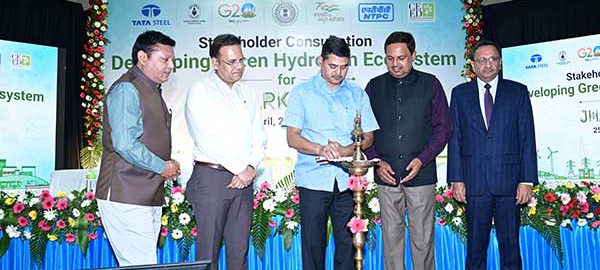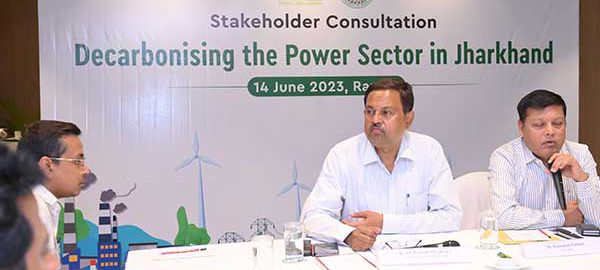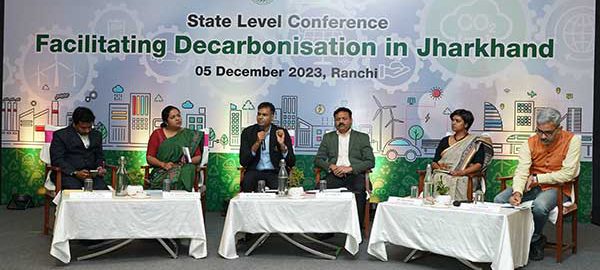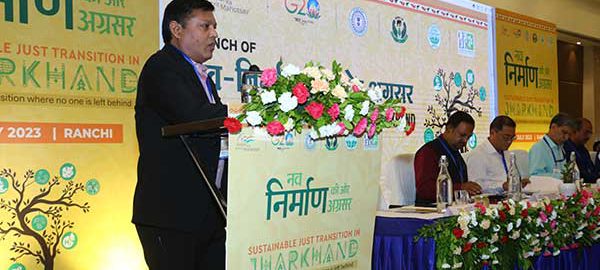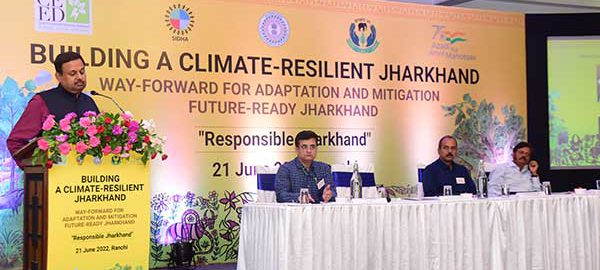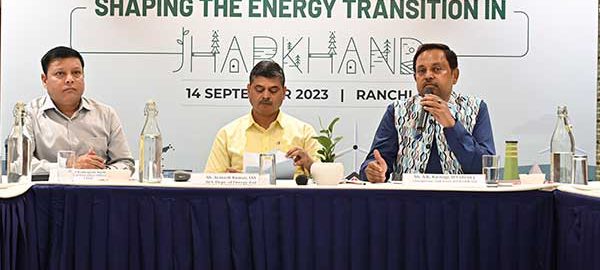Ranchi, 20 June 2024 — The Task Force-Sustainable Just Transition (Government of Jharkhand) and its technical partner, the Centre for Environment and Energy Development (CEED), released a groundbreaking report titled “Critical Minerals for Energy Transition: A Catalyst for Making Jharkhand Future-Ready” at a conference today. The report, prepared by Task Force and CEED, highlights the significance of critical minerals in accelerating initiatives for decarbonization and cleaner energy transition for shaping a sustainable future.
The report was unveiled by the Chairman of the State Finance Commission (GoJ) and senior officials from the Departments of Industries, Mines & Geology in the presence of key representatives from public sector undertakings, energy think tanks and civil society organizations.
Critical minerals often referred to as rare earth elements and other strategic minerals, play an indispensable role in the production of a diverse range of high-tech applications, including electronics, renewable energy technologies, electric vehicles, defence systems, and advanced medical devices.
Lauding the key theme of the report, Mr. A.P. Singh (IAS, retd.), Chairman of the State Finance Commission, Government of Jharkhand emphasised that the worldwide transition to cleaner energy sources is heavily reliant on the responsible extraction of critical minerals and efficient resource management. Identifying and utilizing mineral-rich regions like Jharkhand can catalyze industrial development, opening avenues for investments, employment opportunities, and infrastructural growth.
Through an exhaustive review of the literature and international case studies, the report broadly explores 35 critical minerals, with a focused analysis of 17 pivotal to India’s pursuit of sustainable energy solutions. Moving ahead, the report further analyses the case of Jharkhand, which houses deposits of 12 critical minerals, particularly copper, nickel, graphite, silicon, cobalt, lithium, cadmium, titanium, gallium, selenium, etc.
Elaborating on the broader context of the report, Mr. A.K. Rastogi (IFS, retd.), Chairperson of the Task Force-Sustainable Just Transition, Jharkhand, emphasized that the transition towards a low-carbon and sustainable energy landscape relies heavily on critical minerals. Similarly, the report highlights Jharkhand’s importance to India’s energy independence and robust supply network. The study further notes the potential to stimulate growth, and innovation in clean energy technologies, attract investments, and create jobs in Jharkhand.
Speaking on the occasion, Shri Sashi Ranjan (IAS), Director – Mines, Department of Mines and Geology, Jharkhand, spoke about the state’s mining capabilities and infrastructure support in meeting the heightened demand and contributing significantly to India’s goals. Shri Sushant Gaurav (IAS), Director, Department of Industries, Jharkhand, stressed the need for research & development and investment in broadening a cleaner industrial base.
Lauding the effort taken by the state government on cleaner energy transition, Mr. Ramapati Kumar, CEO of CEED stated that the report marks a pivotal step towards enabling Jharkhand to become future-ready. He further noted that balancing industrial exploitation with environmental preservation remains a key challenge that requires meticulous planning and effective governance with a convergence approach.
The two-panel discussions witnessed the participation of senior government officials and leading experts, including Shri Inderdev Narayan(CMD-Mineral Exploration and Consultancy Ltd.), Shri Manoj Kumar (Director – Geology, Dept. of Mines and Geology), Shri K.K. Verma, Director, JREDA, Mr. Achyut Ghatak (Director-Technical, CMPDI), Dr. Niharika Tagotra (Senior Research Specialist, World Resources Institute), Shri Charith Konda (Energy Specialist, IEEFA), Dr. Manish Ram (Director – Climate & Energy, CEED), Shri Ashwani Ashok (Director – JT & Environment, CEED), Shri Siddharth Goel (Lead, Energy Program, International Institute for Sustainable Development), and Shri Apoorv Kulkarni, Head of Research, OMI Foundation.
The key ideas and suggestions that emanated from the discussions were; standardizing regulations, overcoming technological and economic barriers, conducting techno-commercial feasible studies, efficient mineral resource management, sharing technologies and know-how, attracting investment in research and development to improve extraction techniques, sustainable mining practices to mitigate impacts, developing efficient recycling methods with a circular economy approach, supply chain stability, and shift to sustainable energy solutions, etc.



